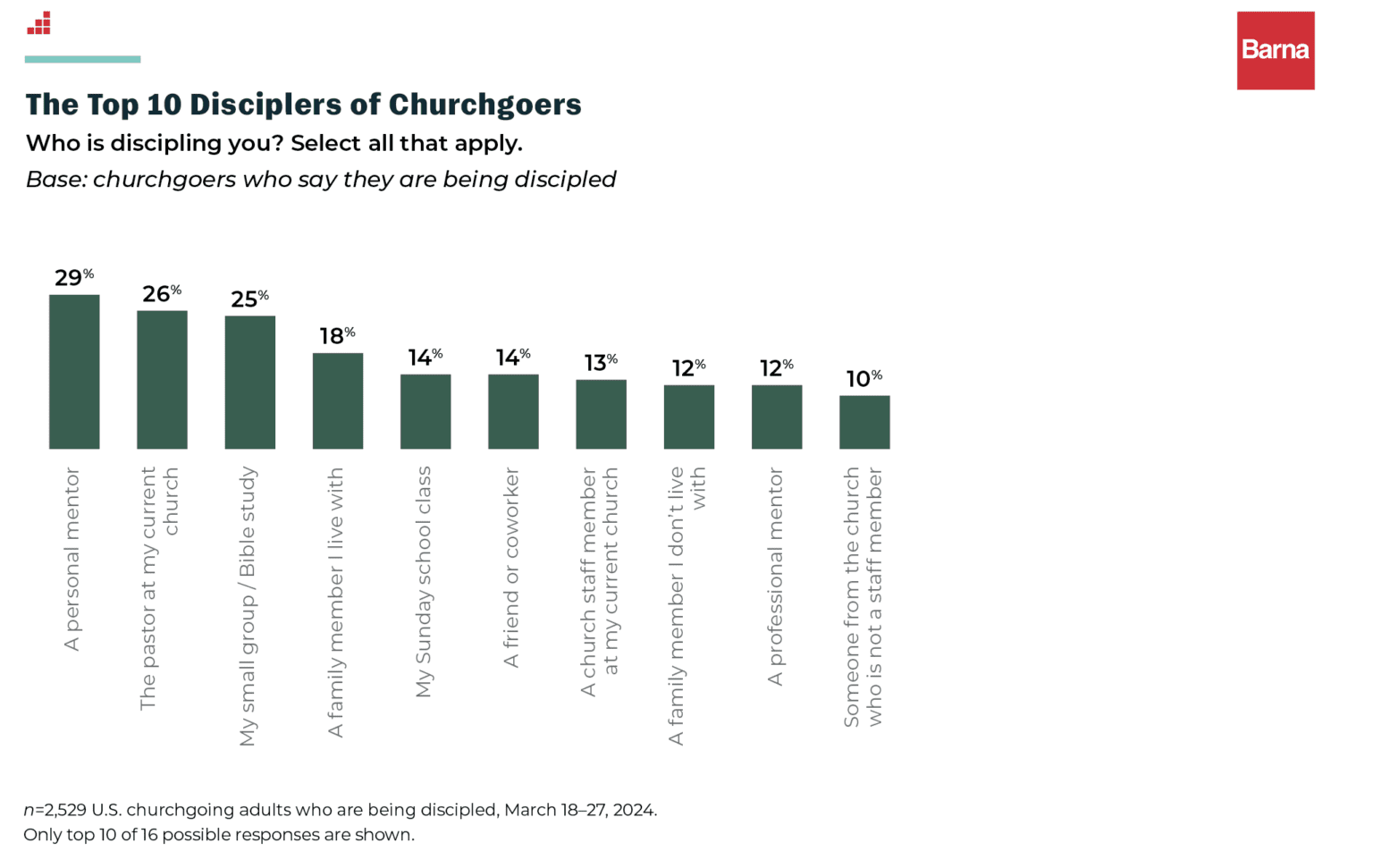The Power of Small Groups (and How to Lead One)
Jan 09, 2025
I'm prone to overlook the significance of things I consider normal.
It’s the first Wednesday night of the year and the start of our book club meeting. Our group has been gathering weekly, but our last meeting was before Christmas and the holiday season.
We launched the Thrive Book Club last fall to help people thrive in life, work, and faith.
I arrive first. Then my friend Rick (a pseudonym) shows up, followed by Alice (also a pseudonym). Rachel (another pseudonym) texts to say she can’t make it. “No worries,” I reply.
We begin with a simple question: “How was your Christmas and New Year?” This leads to a conversation about resolutions and themes for the year ahead.
The night’s focus is on mindset, drawn from Chapter 4 of Dynamic Drive, the book we’ve been reading together.
“Mindset is 90% of growth and success,” I share. Rick and Alice nod in agreement.
Our discussion dives deep into the difference between a fixed mindset and a growth (or faith) mindset. The heart of our talk is this: obstacles aren’t walls; they’re opportunities for growth.
I open up about my struggles, admitting that I often see my “triggers” as walls.
But the good news is that I can replace those walls with abundant truths. Instead of viewing obstacles as dead ends, I can choose to see them as learning opportunities.
Rick and Alice resonate with this, nodding as if to say, “We can relate.”
I share my personal action step for the week: when I feel triggered, instead of reacting defensively, I’ll pause and ask God, “What are You trying to teach me?” This reframes the situation and shifts the focus from blaming others to taking responsibility for my reaction.
Rick and Alice like my idea and share their own actions for the week.
In that moment, I feel supported.
They feel supported.
What started as a “normal” meeting turns into something memorable.
Why? Because being supported feels good.
It’s no wonder small groups matter so much.
Why Small Groups Matter
In a March 2024 survey of over 4,000 Christian churchgoers (defined as those attending services at least once a month), Barna Group (barna.com) explored how people feel supported and mentored in their faith.

They asked, “Who is discipling you?”—in other words, who is mentoring or supporting you?
- 29% said, “a personal mentor.”
- 26% said, “the pastor at my church.”
- 25% said, “my small group or Bible study.”
Notice that last statistic: one in four respondents said small groups play a critical role in helping them thrive in life, faith, and leadership.
Finding a personal mentor or spiritual director can take time and trust. But joining a small group of supportive friends is often much easier—and just as impactful.
At Hinsdale Fil-Am Church, we are dedicated to cultivating a community where everyone is warmly welcomed into a small group to foster connection, inspiration, and personal growth.
Rick Warren, in his book The Purpose Driven Church, captures this vision beautifully:
“Our church must always be growing larger and smaller at the same time.”
He explains that a church grows large through celebrations but grows deep through small groups.
We’ve learned the same lesson: small groups are essential for thriving in life and leadership.
Effective Tips for Guiding Small Group Discussions
If you’re ready to lead a small group, here are some practical tips to make your meetings meaningful and impactful:
1. Know Your Purpose
Why does your group exist? Is it a book club, Bible study, or a support group? For example, our book club exists to help people thrive in their faith, life, and leadership.
Consistency matters, too. Does your group meet weekly, biweekly, or monthly? Weekly or biweekly meetings work best for building trust and connection.
Finally, remember: a small group is not a lecture; it’s a conversation. Your role as a leader is to facilitate dialogue, ask questions, and guide the flow—not to dominate the discussion.
2. Be Mindful of Time
Most small group meetings last 60-90 minutes, with 75 minutes being the sweet spot. If your group includes a meal, add an extra hour to your schedule. Be intentional about managing time so each part of the meeting stays on track.
3. Follow a Simple Outline
Here’s a framework for a 75-minute meeting:
Opening (10 minutes)
- Welcome everyone and break the ice with casual conversation.
- Begin with prayer.
Discussion (45 minutes)
- Prepare your topic or theme in advance with 2-3 key points.
- Use open-ended questions (e.g., “Why?” “How?”) to encourage discussion.
- Listen actively and affirm participants’ insights.
- Gently encourage quieter members to share.
Application and Close (20 minutes)
- Explore how the topic can be applied to daily life.
- Ask participants to share personal actions they’ll take in the week ahead.
- Emphasize confidentiality to create a safe space for sharing.
- Close in prayer and thank everyone for attending.
- Encourage members to invite a friend to the small group, if they feel comfortable.
The Impact of Small Groups
In today’s fast-paced and often isolating world, small groups offer a space for connection, support, and growth.
Whether you’re looking to join a group or lead one, remember: the power of small groups lies in their ability to help us thrive—in life, faith, and leadership.
So, find your circle of support—or start one today!
Receive Nestor's articles directly in your inbox
We respect your privacy. Unsubscribe at anytime.

